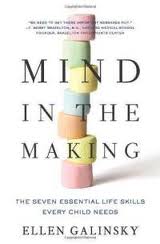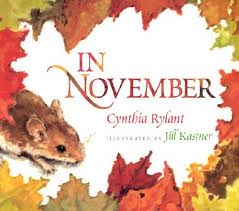Communication

This week we had our first parent meeting to discuss the book Mind in the Making by Ellen Galinsky. Our focus was on the chapter in the book about communication. We gathered in Opal 1 and shared some experiences around the ideas of telling stories and reading. These were two of the suggestions for supporting the development of strong communicators that Ellen Galinsky gives in her book. (She provides 12 suggestions for promoting the essential skill of communication in young children which each family received a copy of in their school home folders this week).
Together we wondered what these suggestions of reading and telling stories looked like both at home and at school. It was so much fun to hear the cross-over between what the children have been excited about at school and what they are doing at home. Like the story of CR who has a new journal where he writes all kinds of stories down and says often to his mom or dad, "Can you go write that down?" Or the story of LH who never picked up a pen or pencil by choice last year and now doesn’t want to go to bed until he finishes the book he is working on. Or AG who reads to her mom at night and instead of getting frustrated when she gets to a word she doesn’t know, she just secretly gives her mom’s hand a little squeeze and gets the word, no questions asked.
Of course all of these stories and chances to connect made me more aware of the diverse, complex ways children were communicating at school this week. Its hard work to communicate, to speak, to listen, to hear, to understand and be understood. But that is what the children in Opal 1 are doing all the time. In story workshop this week we began wondering what authors did to make us want to read a story again and again. If we read and studied some of our favorite authors, could we uncover some of the strategies they use in their own stories? Could we use these strategies in our own stories to ensure our readers would want to read our stories again and again?
We tried it out and were pleasantly surprised by our discoveries. We read In November by Cynthia Rylant. The second page of her story says, "In November, the trees are standing all sticks and bones. Without their leaves, how lovely they are, spreading their arms like dancers. They know it is time to be still."
We were enthralled by the descriptive poetic language and paid especially close attention to the part “…how lovely they are, spreading their arms like dancers.” We wondered what we could call that strategy. Could we try that in our own stories? What would it sound like? The children in Opal 1 took the chance to play with language:
LD said, "I could say the roller coaster was fast like lightening. Or it was fast like a flicker of fire."
CM said, "I could say that the animal had scales like an artichoke."
We will continue to wonder about this idea and keep you updated as we continue to play with language, to tell our own stories, to get inspired by others, to uncover strategies that mentor authors are using, and more!
And we hope you will join us for our next Mind in the Making parent meeting on November 30th where we will have a conversation around the ideas of focus and self control.


